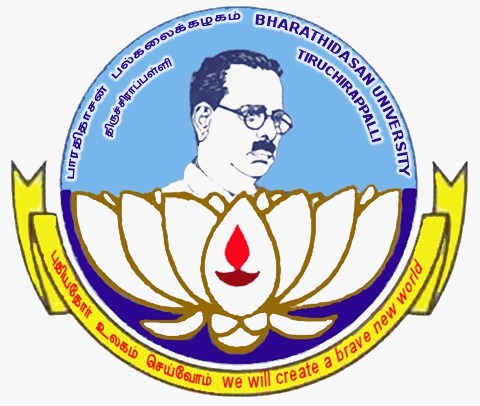GRC
Vishakha Committee (Women Cell)
Arputha College of Arts and Science, Vamban, Pudukkottai has constituted a ‘Women’s
Grievance Cell’ as per the orders of the Supreme Court (Vishaka Judgement), ‘Sexual
Harassment at Workplace Act, 2013’ rules with the aim of promoting gender equality and
women empowerment among students and staff members.
The cell takes care of the grievances of girl students and female staff members related to gender
discrimination, violence and sexual harassment on the campus. It is dedicated to create an
environment on the campus where every female feels safe.
The objectives of the women’s grievance cell are as follows:
- To create an environment of gender justice where men and women work together with a
sense of personal security and dignity. - To create awareness amongst students about the issues related to the youth girls.
- To disseminate knowledge about rights and laws related to women.
- To create awareness amongst students about the problems faced by women due to gender.
- To enhance the self-esteem and self-confidence of girl students, women faculty and staff.
- To foster decision-making ability in girl students for making informed choices in areas
like education, employment and health.
The principle of gender equality is enshrined in the Indian Constitution. At Arputha
College of Arts and Science, Vamban, Pudukkottai, we strongly believe that women and
men have right to live as free and equal human beings and this equality should exist in all
areas of life. All the activities conducted by the cell are directed towards successful
execution of this goal.
About Vishakha Committee the Vishakha Guidelines were a set of procedural guidelines for use
in India in cases of sexual harassment. They were promulgated by the Indian Supreme Court in
1997 and were superseded in 2013 by the Sexual Harassment of Women at Workplace
(Prevention, Prohibition and Redressal) Act, 2013.
Background
Before 1997, a person facing sexual harassment at workplace had to lodge a complaint under
Section 354 of the Indian Penal Code 1860 that deals with the 'criminal assault of women to
outrage women's modesty', and Section 509 that punishes an individual/individuals for using a
'word, gesture or act intended to insult the modesty of a woman.
During the 1990s, Rajasthan state government employee Bhanwari Devi who tried to prevent
child marriage as part of her duties as a worker of the Women Development Programme was
raped by the landlords of the community. The feudal patriarchs who were enraged by her (in
their words: "a lowly woman from a poor and potter community") 'guts' decided to teach her a lesson and raped her repeatedly.
The rape survivor did not get justice from Rajasthan High Court and the rapists were allowed to
go free. This enraged a women's rights group called Vishaka that filed a public interest litigation
in the Supreme Court of India.
This case brought to the attention of the Supreme Court of India, "the absence of domestic law
occupying the field, to formulate effective measures to check the evil of sexual harassment of
working women at all work places."
What is sexual harassment?
Sexual harassment includes such unwelcome sexually determined behavior (whether directly or
by implication) as:
- PHYSICAL CONTACT AND ADVANCES;
- A DEMAND OR REQUEST FOR SEXUAL FAVORS;
- SEXUALLY COLORED REMARKS;
- SHOWING PORNOGRAPHY;
- ANY OTHER UNWELCOME PHYSICAL VERBAL OR
- NON-VERBAL CONDUCTOF SEXUAL NATURE.
Preventive steps
Sexual harassment should be affirmatively discussed at workers' meetings, employer employee
meetings, etc.
Guidelines should be prominently displayed to create awareness about the rights of female
employees.
The employer should assist persons affected in cases of sexual harassment by outsiders.
Central and state governments must adopt measures, including legislation, to ensure that private
employers also observe the guidelines.
Names and contact numbers of members of the complaints committee must be prominently
displayed.
Criminal Proceedings
Where such conduct amounts to a specific offence under the Indian Penal Code or under any
other law, the employer shall initiate appropriate action in accordance with law by making a
complaint with the appropriate authority.
In particular, it should ensure that victims or witnesses are not victimized or discriminated
against while dealing with complaints of sexual harassment.
The victims of sexual harassment should have the option to seek transfer of the perpetrator or
their own transfer.
Disciplinary Action
Where such conduct amounts to misconduct in employment as defined by the relevant service
rules, appropriate disciplinary action should be initiated by the employer in accordance with
those rules.
Complaint Mechanism
Whether or not such conduct constitutes an offence under law or a breach of the service rules, an
appropriate complaint mechanism should be created in the employer’s organisation for redress of
the complaint made by the victim. Such complaint mechanism should ensure time bound
treatment of complaints. Complaints Committee
The complaint mechanism, referred to above, should be adequate to provide, where necessary, a
Complaints Committee, a special counsellor or other support service, including the maintenance
of confidentiality.
The Complaints Committee should be headed by a woman and not less than half of its member
should be women. Further, to prevent the possibility of any undue pressure or influence from
senior levels, such Complaints Committee should involve a third party, either NGO or other
body who is familiar with the issue of sexual harassment.
The Complaints Committee must make an annual report to the Government department
concerned of the complaints and action taken by them. The employers and person in charge will
also report on the compliance with the aforesaid guidelines including on the reports of the
Complaints Committee to the Government department.
Worker’s Initiative
Employees should be allowed to raise issues of sexual harassment at a workers’ meeting and in
other appropriate forum and it should be affirmatively discussed in Employer Employee
Meetings.
Awareness
by prominently notifying the guidelines (and appropriate legislation when enacted on the
subject) in a suitable manner. Awareness of the rights of female employees in this regard should
be created in particular.
Third Party Harassment
Where sexual harassment occurs as a result of an act or omission by any third party or outsider,
the employer and person in charge will take all steps necessary and reasonable to assist the
affected person in terms of support and preventive action.
The Central/State Governments are requested to consider adopting suitable measures including
legislation to ensure that the guidelines laid down by this order are also observed by the
employers in Private Sector.
These guidelines will not prejudice any rights available under the Protection of Human Rights
Act, 1993.
INTERNAL COMPLAINT COMMITTEE MEMBERS (2023 – 2024)
| Sl.No. | Name of the Member | Designation | Position in Committee | Contact Number |
| 1. | Sr. Dr. V. Bugcy Mettilda | Assistant Professor in Mathematics | Chairperson | 9751770355 |
| 2. | Sr. Dr. A. Carmel | Head & Assistant Professor in English | Member | 7639158249 |
| 3. | Dr. L. Anandhavalli | Head & Assistant Professor in Tamil | Member | 9786505479 |
| 4. | Dr. G. Thilipkumar | Assistant Professor in Computer Science | Member | 9842488226 |
| 5. | Mrs. S. Santhiya | Head & Assistant Professor in Microbiology | Member | 9626088942 |
| 6. | Mrs. R. Rajathi | Sub Inspector of Police, Women’s Police Station, Pudukkottai. | Advisor and Member | 9498165844 |
| 7. | Mr. P. Vimal Arockiya Joseph | Advocate cum Legal Advisor | Legal Advisor | 9942179404 |
| 8. | Sr. A. Margret Mary | Office Superintendent | Member | 9486259221 |
| 9. | Miss. M. Sathya | B.A. III year (Eng) | Student Member | – |
| 10. | Miss. T. Kaleeswari | B.Sc. III year (Maths) | Student Member | – |




